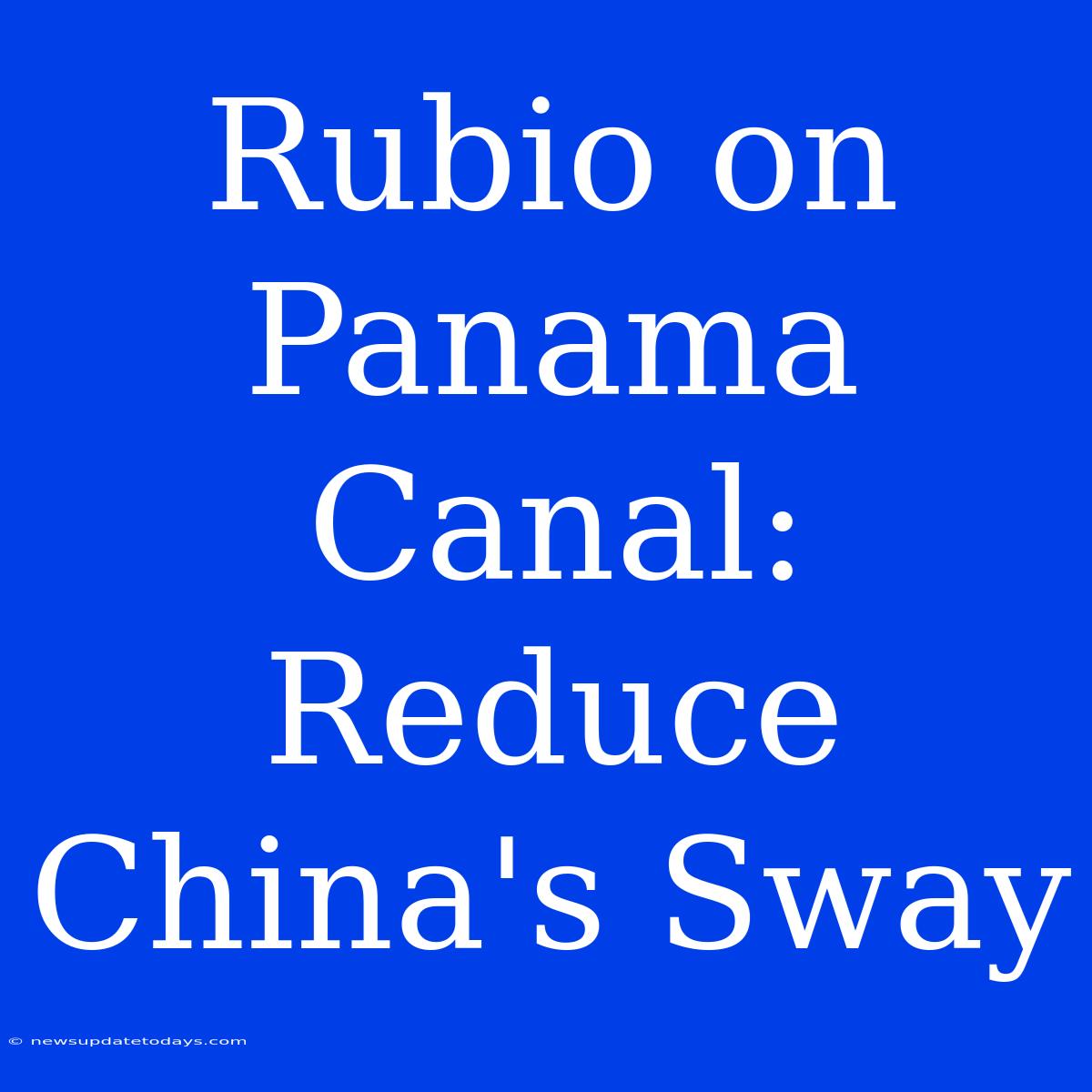Rubio on Panama Canal: Curbing China's Growing Influence
Marco Rubio's recent statements regarding the Panama Canal highlight growing concerns about China's increasing economic and geopolitical influence in the region. The Panama Canal, a crucial artery of global trade, has become a focal point in the ongoing strategic competition between the United States and China. This article delves into Rubio's concerns, the implications for US interests, and potential strategies to mitigate China's growing sway.
Rubio's Concerns: A Strategic Perspective
Senator Rubio, a prominent voice in US foreign policy discussions, has voiced alarm over what he perceives as a creeping Chinese encroachment on Panama's infrastructure and economic landscape. He highlights concerns about potential Chinese control or significant influence over the Canal's operations, arguing this would pose a significant threat to US national security and economic interests. These concerns stem from:
-
Economic Dependence: Rubio worries about Panama becoming overly reliant on Chinese investment and loans, potentially creating vulnerabilities to Chinese pressure or even outright control. This could compromise the canal's neutrality and its vital role in global trade.
-
Strategic Implications: Control or significant influence over the Panama Canal would grant China a strategic chokepoint in global shipping, impacting US trade and military movements. This would grant China substantial leverage in international affairs.
-
National Security Risks: The potential for Chinese intelligence gathering or even sabotage through infrastructure investment in the canal region is a serious concern, impacting both commercial and military interests.
The Stakes for the United States
The Panama Canal's strategic importance to the United States is undeniable. Its disruption would significantly impact US trade, impacting supply chains and the national economy. Furthermore, the canal is critical for US military operations in the region, providing a vital transit route for naval vessels and equipment. Losing influence over the canal would represent a major blow to US geopolitical standing in the Western Hemisphere.
Strategies to Counter China's Influence
Addressing China's growing influence requires a multifaceted approach:
-
Increased US Investment: Investing in infrastructure projects within Panama and the surrounding region could serve as a counterbalance to Chinese investment, promoting economic diversification and reducing dependence on China.
-
Strengthening Alliances: Strengthening diplomatic ties with Panama and other regional partners is crucial to ensuring a shared understanding of the challenges and opportunities in the region. This can help counterbalance Chinese influence through collaborative efforts.
-
Promoting Transparency and Accountability: Encouraging greater transparency in infrastructure projects and financial dealings can help mitigate the risk of corruption and undue Chinese influence.
-
Supporting Panamanian Sovereignty: Supporting Panama's sovereign decision-making process ensures that the country’s choices are aligned with its own national interests and regional stability, rather than being influenced unduly by external powers.
Conclusion: A Balancing Act
The situation surrounding the Panama Canal underscores the ongoing competition between the US and China for global influence. Senator Rubio's concerns highlight the need for proactive strategies to ensure the canal's continued operation in a way that safeguards US interests and promotes regional stability. A balanced approach, combining economic engagement, diplomatic initiatives, and a strong commitment to Panamanian sovereignty, is crucial to navigating this critical geopolitical challenge.

